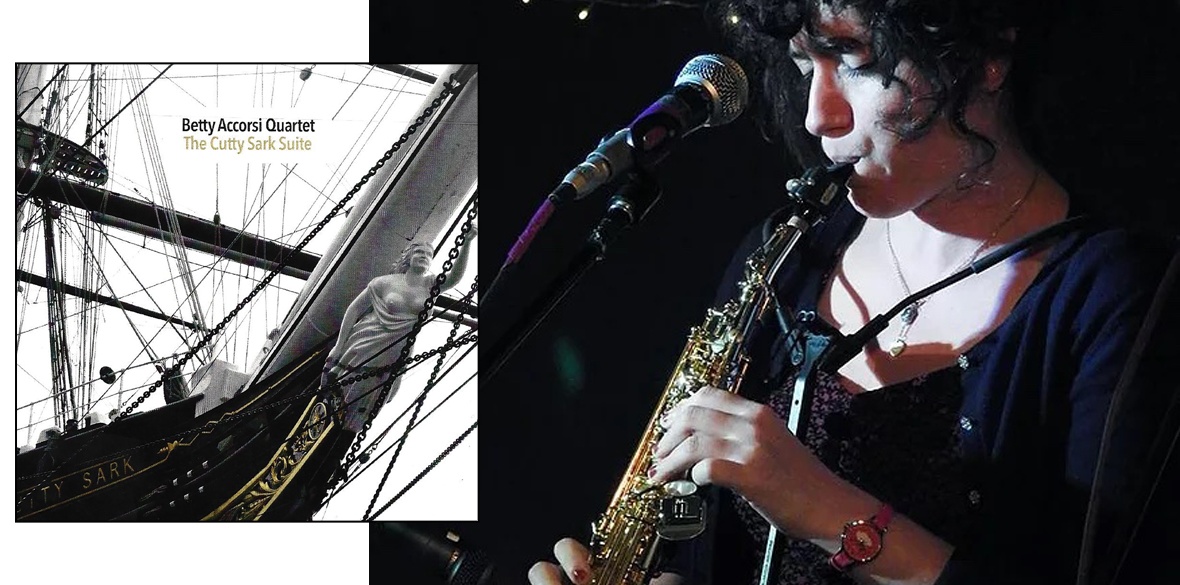This is the last article you can read this month
You can read more article this month
You can read more articles this month
Sorry your limit is up for this month
Reset on:
Please help support the Morning Star by subscribing here
WHEN Betty Accorsi arrived in London to study jazz saxophone at Trinity Laban College, she found a home in Greenwich in the shadow of the renowned tea clipper the Cutty Sark.
For Accorsi, the dry-docked hulk “represented a sense of belonging to the greater, more diverse community that I found in London.”
Born in Milan in 1989, she initially studied classical saxophone but it was two jazz saxophonists who most inspired her: “Wayne Shorter and his beautiful playing of the soprano saxophone and also his ability to compose.
“And I love the English saxophonist John Surman for his extraordinary open mind and how he combines jazz with electronics and English folk music.”
She continued her studies at Goldsmiths, University of London, where she found kindred musical spirits and formed a quartet comprising pianist Finn Carter, drummer Scott MacDonald and bassist Andy Hamill.
“We are open to many genres and can adapt to any performing situation,” she says. “I love the way that we mix jazz with punk.”
Her Cutty Sark Suite was inspired by walking around the ship “with the happiest thoughts in my head. I would imagine boarding her and being transported somewhere and have this sudden feeling of liberation.
“After visiting the Cutty Sark, I realised how different the life of a sailor on a clipper could be.
“Coming from the Mediterranean I’m influenced by my own country along with all Mediterranean countries.
“This made me curious about all the different cultures and gave me an ‘in character’ approach to my suite.”
Suggestions of each musical tradition are incorporated into each piece, “like a visitor docking at a port would be fascinated by the many sounds and languages found in each place.”
Accorsi also draws inspiration from Chinese traditional music, Javanese Gamelan, the anti-apartheid tones of the compelling South African saxophonist Basil Coetzee as well as English folk music.
“I was determined to combine jazz with formal elements of traditional music from these countries,” she says, “and as the ideas progressed I moved to focus my story’s narrative.
“I’ve no claim to be a musicologist, much less an ethnomusicologist. My music just reports on my personal suggestions.”
Her suite is powerfully evocative and cosmopolitan, a jazz embrace of the world played by the four young musicians with invention, melodicism and lyricism, led by Accorsi’s beautifully fluid and lucid horn.
Accorsi sings wistfully on the English folksong All Things Are Quite Silent, which tells a young wife’s story of her press-ganged husband and moves from sadness to a mambo-inspired conclusion that rocks with the undulating sea.
She’s not entirely averse to my suggestion that her suite could make a significant addition to the school.
“I could teach about the creative process behind writing these pieces and about composition as an imaginary journey, she says.
“But I’m only one of many writers, painters and composers who have used their art to travel to places far away.”
But what a journey in sound she takes with her Goldsmiths shipmates. Theirs is a powerfully expressive debut voyage, full of human depth and musicianship.









